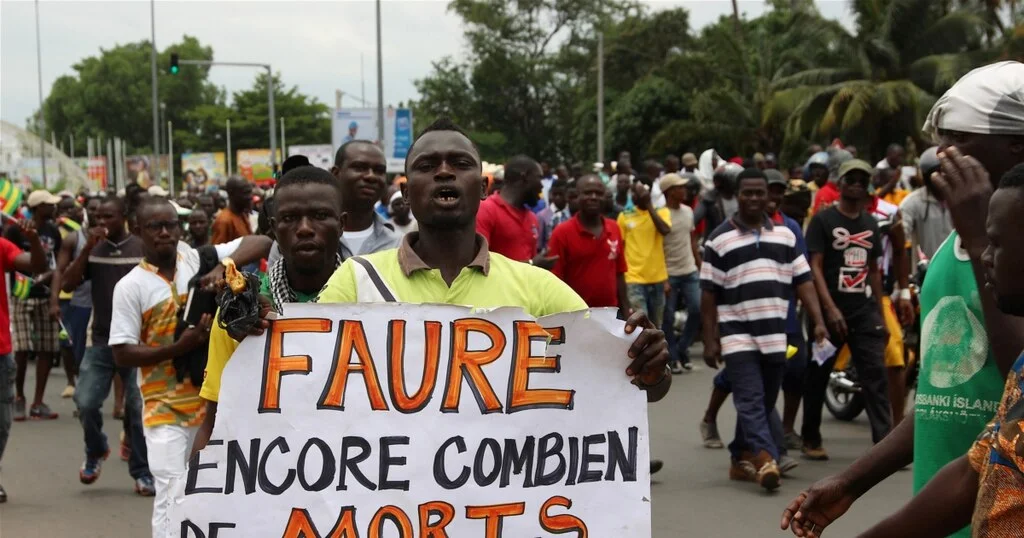Lomé, Togo – President Faure Gnassingbé is under intense scrutiny following a government crackdown on protests demanding his resignation over controversial constitutional reforms that could extend his rule indefinitely.
The changes, enacted earlier this year, have ignited widespread unrest in Togo’s capital, Lomé, and drawn sharp criticism from activists and opposition groups.
Clampdown Sparks Outrage
On Tuesday, activists condemned the arrest and alleged maltreatment of dozens of protesters following demonstrations late last week in Lomé and on social media.
Around 80 individuals were detained, with approximately half released by Monday evening.
At least 25 remain in custody, according to a local rights group, which has called for their immediate release.
Aimé Adi, director of Amnesty International’s Togo office, reported that “several people were beaten during their arrest,” highlighting concerns over excessive force.
Constitutional Reform Fuels Tensions
Gnassingbé, who has led Togo since 2005 following his father’s death, was sworn in as President of the Council of Ministers in May 2025.
This newly created role, which lacks term limits and allows indefinite re-election by parliament, has been labeled a “constitutional coup” by opposition leaders.
The move has deepened public frustration in a country where demonstrations have been banned since a 2022 market attack in Lomé.
Opposition Demands Change
The coalition “Hands Off My Constitution” has demanded an end to Gnassingbé’s regime, stating, “After 20 years of absolute and repressive power, this regime can no longer offer anything to the people.”
The group’s call reflects growing public discontent with the Gnassingbé family’s 58-year grip on power, which began with Faure’s father, Gnassingbé Eyadéma, in 1967.
Government Defends Actions
Public prosecutor Talaka Mawama justified the arrests, describing the protests as “a revolt against the institutions of the Republic.”
However, the government’s response has drawn international attention, with critics arguing it undermines democratic principles in a region already grappling with coups and governance challenges.
A Region on Edge
Togo’s political crisis comes amid broader regional instability, with the constitutional changes amplifying fears of democratic backsliding.
The ban on protests since 2022 has stifled dissent, but recent demonstrations, partly inspired by the arrest of rapper Aamron for criticizing the regime, signal a growing youth-led resistance.
As pressure mounts, the international community watches closely to see if Togo can navigate this turbulent period.























